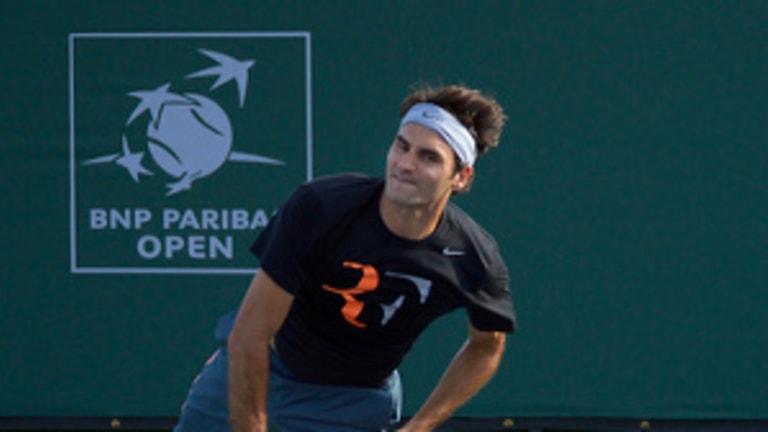Steve,
I see that you gave Roger [Federer] a B for his performance in Key Biscayne. Do you think that’s really fair for someone who is 32 years old? He's now in the Top 5 and should have beaten a guy [Kei Nishikori] who is 10 years younger than he is.—Alexa
I thought the B was generous, actually; or at least empathetic. I wonder what Federer would give himself for losing to Nishikori after being up a set and a break twice? My grade did factor in, if not his age, his current situation. Federer is 32, he had just reached the finals of back-to-back tournaments, and, with Davis Cup following soon, he had suggested in Indian Wells that he might not even play Miami. Federer also said in Indian Wells that he half-expects himself to have good results followed by “early exits.” Taking his busy and successful last month of play into consideration, I thought a B, despite the fact that he blew a lead in the quarters against a lower-ranked player, was fair for his Miami run.
Your question leads to bigger one: How much slack should we cut Federer for his "advanced" tennis age? Some is in order, of course; I don’t think anyone, even Federer himself, expects him to win 12 tournaments in a season, the way he did in 2006 when he was 25. And leaving aside his past achievements, what he’s doing at 32 is impressive. By that age, Borg, McEnroe, Sampras and most other male Open era greats were either out of the game or in terminal decline; Federer, as you said, just moved back into the Top 5, and he nearly beat the world No. 2, 26-year-old Novak Djokovic, two times in one month. Once upon a time we celebrated Andre Agassi for playing well into his 30s, but he won his last major title, the 2003 Australian Open, at the age Federer is now.
Yet I think we can make too many allowances for Federer’s age. One reason we celebrated Agassi was that at the time he was a rarity. Now we can look back and see that his career marked the beginning of a trend toward success at older ages in tennis. Federer said last month that he doesn’t feel ancient in part because so many of the guys he grew up with are still on tour with him. He’s not a outlier, but part of the aging of the sport in general. Tommy Haas, who turns 36 this week, is ranked No. 17. Radek Stepanek, who has clinched the last two Davis Cups for the Czech Republic, is 35. Stan Wawrinka, who turned 29 last week, just made his biggest career breakthrough. Only one player in the ATP’s Top 10, Milos Raonic, is under 25 (and he’s ranked No. 10). On the women’s side, the world’s two top-ranked women, Serena Williams and Li Na, are both 32.
(The phrase “aging of the game” is unfortunate; it makes it sound like a bad thing, a weakening in some way. I’d say it’s the opposite, that it’s a sign the tour has become at least slightly more humane, and less prone to burning its stars out, over the last two decades. Tennis players shouldn’t have to stop doing what they love at 30, and there's nothing wrong with fans getting to see them at or near their best for as long as possible.)
